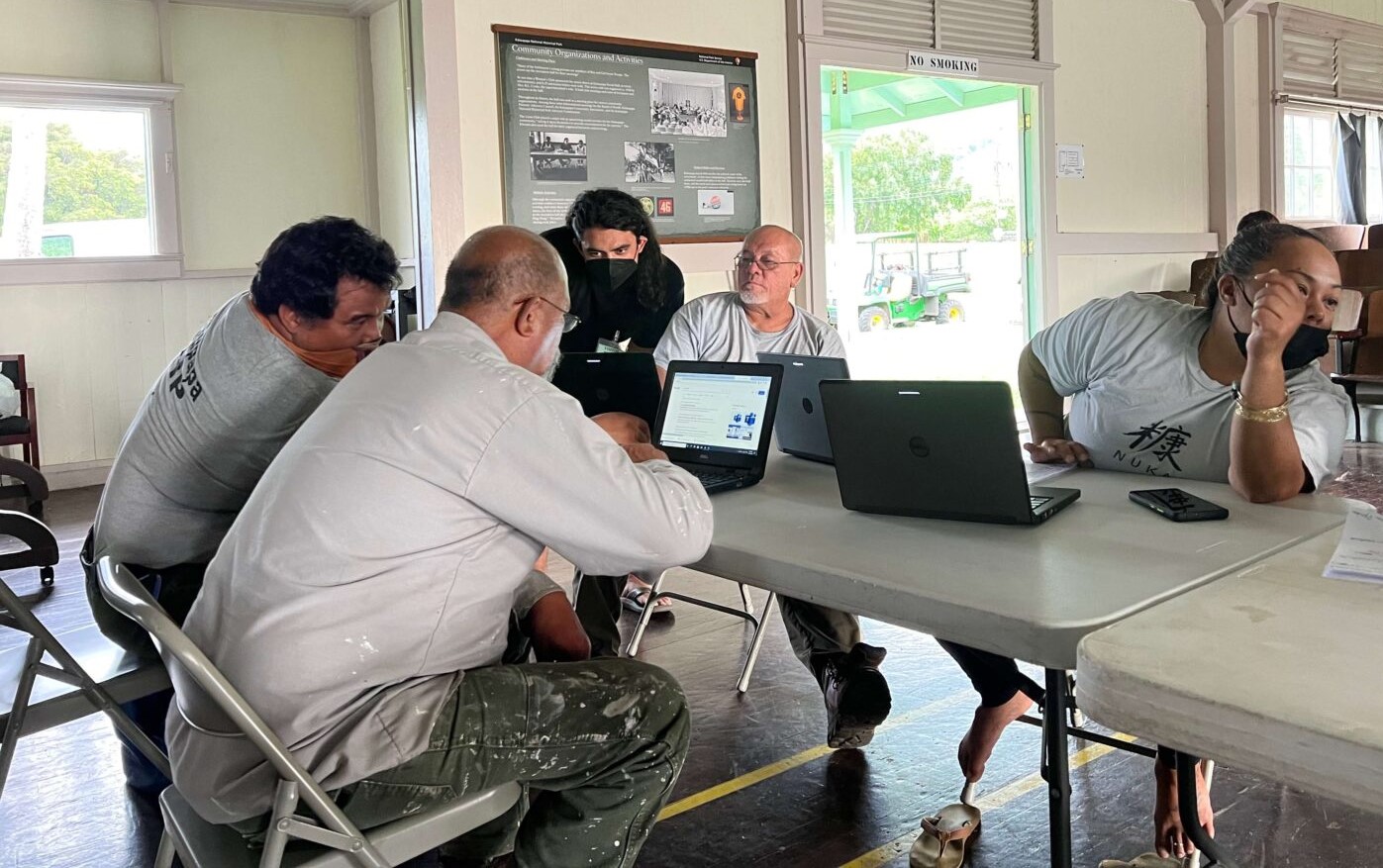
Related Stories
Digital Equity Champions for All Learners: Māpunawai Cultivates Digital Resilience Among Native Hawaiians
Māpunawai is a nonprofit organization bridging the digital divide and building economic opportunities for Native Hawaiians by providing training, equipment, and mentorship. Māpunawai serves learners across all islands of Hawaii, including individuals in rural, lower-income parts of the state. Ka’ala Souza, Māpunawai’s president and founder, noted that Native Hawaiians are increasingly priced out of the islands and forced to leave their ancestral homelands. Souza sees building digital and entrepreneurial skills as a way to empower Native Hawaiians with economic opportunities while remaining in their home communities.
When Māpunawai began as an online entrepreneurship program, Souza found that many participants first needed foundational access to internet, devices, and digital skill-building opportunities. The organization began offering free laptops and computer classes, as well as collaborating with community partners to enroll participants in the Affordable Connectivity Program (ACP).
Māpunawai’s digital literacy trainings target individuals with little to no exposure to computer skills. Souza found that for aging populations especially, technology can be anxiety-inducing. They might feel shame around their lack of knowledge or fear they won’t be able to learn. Souza additionally found that individuals need a basic level of digital literacy to recognize the usefulness of technology in their lives.
Māpunawai leverages partnerships to expand their capacity and impact. For example, Māpunawai received funding from Kamehameha Schools, an education network serving Native Hawaiian learners, to scale their classes. The organization has also partnered with the University of Hawaii Area Health Education Center to provide laptops to participants and the Hawaii State Public Library System to host classes around the state. Members of The Kūpuna Collective, which supports aging populations in Hawaii, and other community organizations have helped recruit participants, provided food and materials for classes, and followed up with participants to ensure they enroll in the ACP.
Māpunawai also specifically addresses participants’ fears and anxieties around technology. Souza structures courses to be community-oriented, welcoming, and fun, thereby counteracting the stigma against not having prior experience. Since the program purposefully recruits learners with little to no exposure to digital skills, Souza ensures learners feel they are not alone in not knowing how to use technology and paces instruction to meet their needs. Souza recalled one participant – an elder in a rural, low-income area of Oahu – who said, “I’ve tried to do other computer classes before, but I just felt dumb when I was in them… [The instructors and other students] would go past me. I’ve just been praying .”
Māpunawai’s program cultivates digital resilience by connecting participants to the internet and teaching them how to leverage digital access to continue learning online. Souza explained: “When you hear yourself saying ‘I don’t know how’… pivot that into a question, ‘How do I?’”
Māpunawai also provides online entrepreneurship courses, further demonstrating how digital access unlocks economic opportunities. Souza shared the story of a woman in Moloka’i, Hawaii’s most rural island, who with Māpunawai’s guidance and support, opened an online business with $88 to purchase inventory. She grew her online business and now yields $400-500 in revenue monthly.
As of August 2023, around 1,500 people have participated in Māpunawai’s digital literacy classes, and 1,300 have received a free device from the organization. Comparing pre- and post-surveys, most participants indicated significantly increased comfort with technology. Souza noted that in the 1800s, the Kingdom of Hawaii had among the highest rates of literacy in the world; his goal is to make Hawaii the most digitally literate state in the nation.
When asked what advice he would give digital equity leaders, Souza emphasized:
- Digital resilience involves teaching people how to learn on a computer, not just discrete skills.
- Digital inclusion services must be scaled accessibly – individuals with disabilities will need tailored support and skill-building opportunities.
- Uplifting what can be achieved with digital skills can help people recognize the benefits of digital access and literacy.
- Coordination and clarity around roles for different partners can expand the impact of digital equity efforts.


